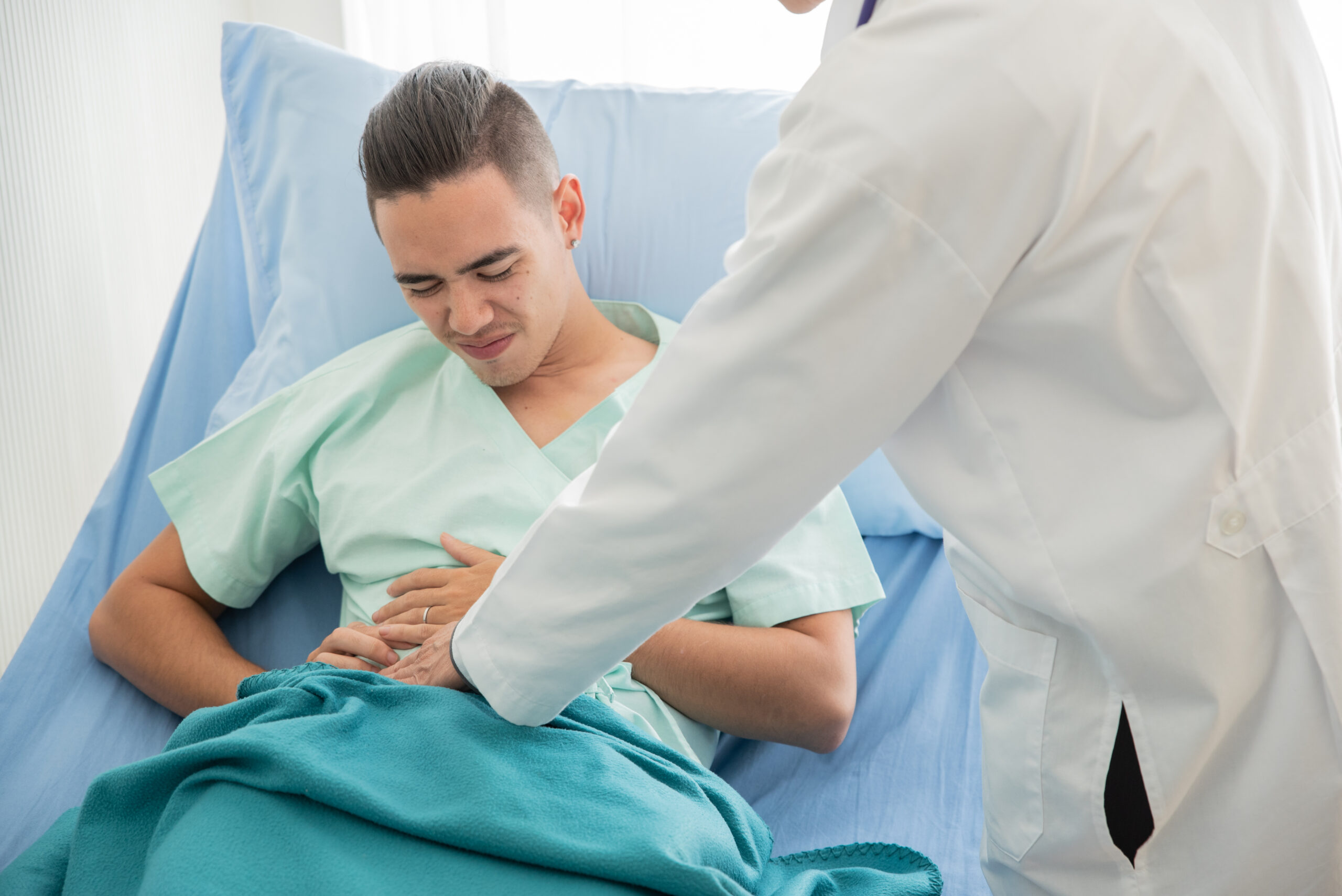What is colitis?
Colitis is a condition that refers to the general inflammation of the inner lining of the colon. Although ulcerative colitis is sometimes called colitis they are not the same thing.
There are many different types of colitis that can cause inflammation in the colon, along with other unique symptoms. A few common types of colitis:
- Ulcerative colitis (IBD colitis) – causes irritation and swelling of the large intestine
- Microscopic colitis – causes persistent watery diarrhea
- Ischemic (ischaemic) colitis – a result of inadequate blood supply
- Infectious colitis (food poisoning) – a result of ingestion of viruses and bacteria
The board-certified physicians at GI Alliance are equipped to treat all forms of colitis and other gastrointestinal ailments. Contact your local GI Alliance to learn more about treatment options for you and your specific condition.

What causes colitis?
There are many different reasons why the inner lining of the colon may become inflamed. A few of the most common causes include:
- Loss of blood supply to the colon (ischemia)
- Crohn’s disease
- Inflammatory bowel disease (IBD)
- Allergic reactions
- Infection (from parasites invading the body)
- Invasion of the colon wall with collagen or lymphocytic white blood cells
- Some over-the-counter and prescription medications (common medications causing colitis include nonsteroidal anti-inflammatory drugs (NSAIDs) and mycophenolate)
No matter the cause of your colitis, you can find a specialist at GI Alliance who can help treat your illness. Contact your local GI Alliance clinic to learn more about the different causes of colitis.
What are the symptoms of colitis?
Symptoms of possible colitis include:
- Fatigue
- Depression
- Rapid weight loss
- Changes in bowel habits (including constant urge to have a bowel movement)
- Fever and/or chills (signs of infection)
- Ulcers on the colon
- Pain in/of the joints, or colon (abdomen) which can come in waves or be constant
- Tenderness in the abdomen
- Cramping
- Diarrhea (with or without blood in the stool)
- Eye inflammation
- Canker sores
- Blood in the stool
If you are experiencing any of the above symptoms consistently, please call your local GI Alliance and seek care with an expert gastroenterologist.
What are the treatment options for colitis?
Common treatments across all types of colitis can include:
- Painkillers
- Stabilization of vital signs
- Rehydration of the body – orally or intravenously
- Common IBD medications
- Adjustment of diet
Depending on the cause of the colitis, treatment options may vary.
- Infections – If the infection is caused by bacteria then antibiotics can be prescribed. If the infection is viral then keeping the body hydrated and allowing time to pass are the best ways to treat the colitis.
- IBD – If the cause of the inflammation comes in consequence of Crohn’s disease or ulcerative colitis then anti-inflammatory medications may be used initially and medications that suppress the immune system can be added if necessary. Surgery may be necessary depending on the severity of the colitis.
- Ischemic colitis- The main treatment for Ischemic colitis is to hydrate the body with intravenous fluids and to rest the bowel. If blood supply is not restored to the colon then surgery might be necessary to remove those parts of the colon that lost blood supply.
- Microscopic colitis- In some cases, the body can heal itself. It can also be treated with anti-diarrheal medication and some steroids, adjustment of diet, and rarely, surgery.

When should I see a doctor about colitis?
Colitis FAQs
What is the difference between colitis and ulcerative colitis?
Colitis and ulcerative colitis, while closely related, differ significantly in their scope and implications for health. Colitis refers to a general inflammation of the colon and can be caused by a variety of factors, including infections, reduced blood flow, certain medications, or allergic reactions, leading to symptoms such as abdominal pain and diarrhea. Ulcerative colitis, on the other hand, is a specific form of colitis that falls under the category of inflammatory bowel disease (IBD). It is characterized by chronic inflammation and the formation of ulcers along the inner lining of the colon and rectum, with symptoms that are often more severe.
What diet should I maintain when having colitis?
When managing colitis, it’s crucial to adopt a diet that minimizes intestinal distress and promotes healing. A low-residue diet, which reduces the intake of fiber to lessen the volume and frequency of bowel movements, can be beneficial. Additionally, an anti-inflammatory diet, rich in omega-3, fatty acids, lean proteins, and abundant in fruits and vegetables, can help reduce inflammation. Lastly, an elimination diet, where common irritants like gluten, dairy, and processed foods are systematically removed and then gradually reintroduced, can be effective in identifying specific food sensitivities. Together, we will work to find a diet that helps to alleviate symptoms, maintain nutritional balance, and support your overall digestive health.
What complications could arise if colitis is left untreated?
Leaving colitis untreated can lead to severe complications, including the risk of colon perforation, which is a life-threatening condition where a hole forms in the colon wall. Patients may also develop toxic megacolon, characterized by rapid swelling and potential rupture of the colon. Furthermore, untreated colitis increases the risk of colon cancer due to chronic inflammation and can heighten the likelihood of developing other inflammatory diseases, such as arthritis or skin disorders. Early diagnosis and management are crucial to prevent these serious health outcomes.
